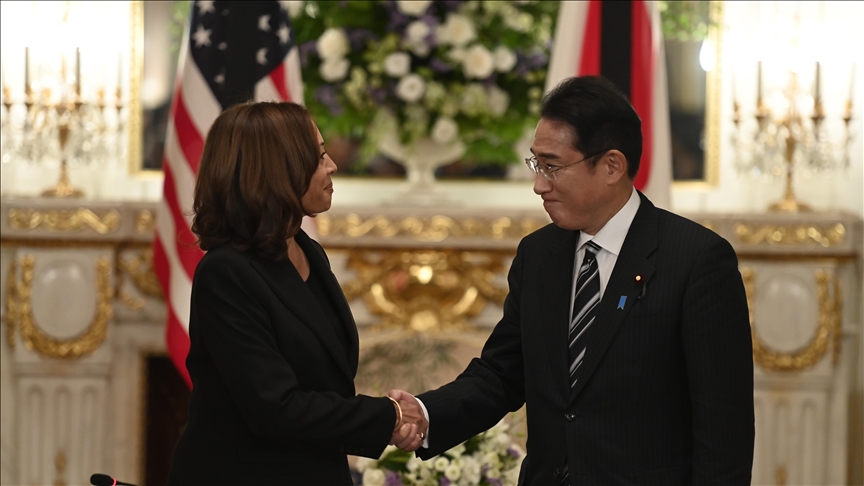ISTANBUL
US Vice President Kamala Harris was told by Japanese Prime Minister Fumio Kishida in Tokyo on Monday that “most important challenge for Japan and the US is to maintain peace and stability” in the Asia-Pacific region.
During a bilateral meeting at Akasaka Palace in Tokyo, the visiting US vice president, however, said that Washington “would work with Japan if one of its closest US allies faced security threats,” Kyodo News reported.
Harris one of over 40 foreign dignitaries visiting Japan to attend a state funeral for former Prime Minister Shinzo Abe, who was assassinated in early July while delivering an election campaign speech in the western Nara city.
“The alliance between Japan and the US is a cornerstone of what we believe is integral to peace, stability and prosperity in the Indo-Pacific region,” Harris told Kishida.
Australia is part of the Quad, a loose security alliance led by the US that includes Japan and India, to counter China’s increasing economic and military influence in the Asia-Pacific region which Washington has rephrased as Indo-Pacific.
Washington has launched a number of other initiatives including the AUKUS, where Australia will get nuclear-armed submarines, the Indo-Pacific Economic Framework and the Blue Pacific Partnership.
“The US-Japan Alliance is as strong as it’s ever been. We are committed to strengthening it further, as it is critical to the prosperity and security of the American people,” Harris said on Twitter.
Security agencies have been put on high alert as over 18,000 police personnel will guard the venue set up in a park near the Nippon Budokan Hall in Tokyo, where the foreign dignitaries and locals will pay tributes to the former leader of the ruling Liberal Democratic Party, known for stabilizing the Japanese political arena.
Prime ministers of Australia, India, South Korea, and Cambodia, and International Olympic Committee President Thomas Bach are among other foreign guests.
The event, incurring around 1.66 billion yen ($11.6 million) in costs paid from taxpayers’ money, has received huge criticism from the public and politicians.

